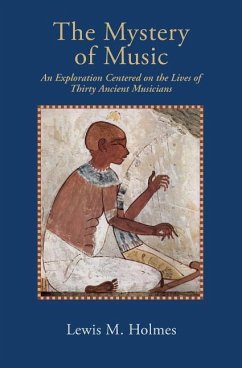This book demonstrates that music serves the same societal functions at present as it has throughout human history. It is the first time that such a conclusion has been based on firm historical evidence. The text is built around brief biographies, or 'profiles, ' of thirty musicians from the distant past. These men and women lived between approximately 2500 BCE and 1500 CE at locations that span half the globe. They came from a variety of social classes and carried out social, political, religious, entertainment, and other functions in society. Musical activities in the past are shown to resemble those of the present: The Mesopotamian princess Enheduanna composed hymns to her gods. The Greek composer Pindar sold songs about athletes. The Roman emperor Nero got an ego boost by singing on stage. The Arabian songstress Jamila performed erotic music for her ecstatic fans. The European troubadour Marcabru used music to criticize upper-class immorality. The blind Japanese lutenist Akashi no Kakuichi composed a massive and influential musical war epic. On the basis of musicological studies from the 19th and 20th centuries, the respected social scientist Alan Merriam formulated a list of ten functions of music. All these ten functions have now also been identified in the present study of ancient musicians. This indicates that musicians' functions in society have remained much the same through a wide range of historical changes. This evidence of constancy through different historical stages adds support to the view that human musicality is a genetically determined trait, rather than a characteristic that is acquired from the individual's cultural context. The text also reviews and comments on evolutionary theories concerning the acquisition of musicality. 'Musical entrainment, ' which has recently received a great deal of attention from evolutionary scientists, is singled out for special attention. Examples taken from the profiles and elsewhere help to clarify this rather obscure concept. The book is introduced by an historical overview of the ideas expressed by philosophers, scientists, and others about music. Appendices to the text establish the relation of this study to traditional ethnomusicology and describe the anthropological framework that has been employed. More than 400 bibliographic references and a detailed index complete the presentation.
Hinweis: Dieser Artikel kann nur an eine deutsche Lieferadresse ausgeliefert werden.
Hinweis: Dieser Artikel kann nur an eine deutsche Lieferadresse ausgeliefert werden.








